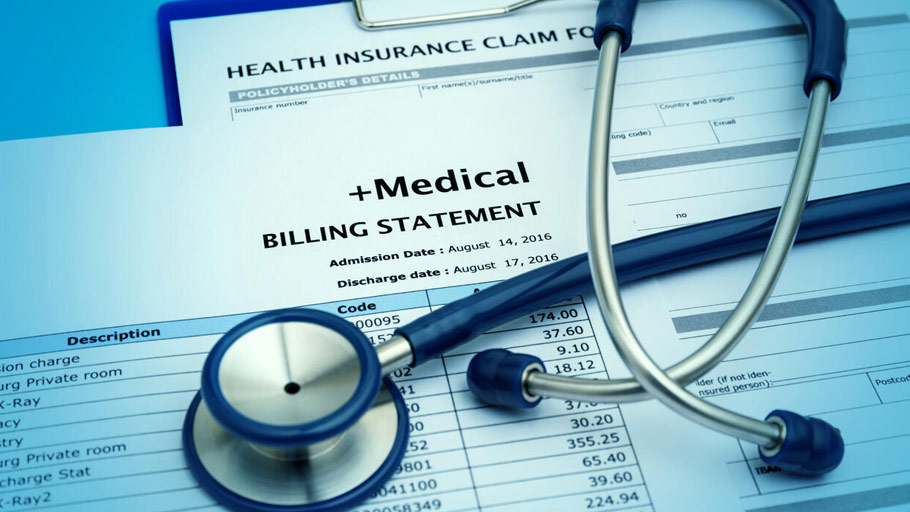Medical billing errors can have significant financial and administrative repercussions for healthcare providers and patients alike. From coding mistakes to documentation errors, the complexities of medical billing and coding processes leave room for potential errors. However, with expert guidance and proactive strategies, healthcare professionals can minimize these mistakes and navigate the billing landscape with confidence.
Some of the most common medical billing errors:
Coding errors: Coding errors happen when an incorrect code is used to describe a medical service or procedure. These errors can occur due to using outdated codes, selecting the wrong level of detail, or making mistakes during the coding process.
Documentation errors: Documentation errors occur when essential information about a patient’s care is missing or incomplete in the medical records. Inaccurate or insufficient documentation can lead to claim denials and delays in reimbursement, as insurance companies rely on comprehensive and accurate documentation to process claims.
Data entry errors: Data entry errors occur when incorrect information is entered into a medical billing system. These errors can stem from human mistakes during manual data entry or system errors. Inaccurate patient information, procedure codes, or billing details can result in claim rejections or incorrect billing.
Processing errors: Processing errors happen during the handling and processing of claims. This can include claims being lost in transit, claims being sent to the wrong insurance company or address, or errors occurring during the claims processing stage. Processing errors can lead to delays in reimbursement and additional administrative work to rectify the mistakes.
Expert tips that healthcare professionals can use to minimize billing errors:
Utilize Certified Medical Billers to Minimize Medical Coding Errors
Employing certified medical billers (CMBs) who possess specialized training and certification in medical billing and coding can significantly reduce coding errors. Certified medical billers have a comprehensive understanding of coding rules and guidelines, helping to ensure accurate code selection and billing.
Establish a Comprehensive Quality Assurance Program
Implementing a robust quality assurance program is vital for identifying and rectifying billing errors before they impact revenue and patient satisfaction. Conduct regular audits of claims and coding processes to detect and address discrepancies or potential errors. Provide ongoing training for staff members to keep them informed about updated billing procedures, coding guidelines, and industry best practices.
Stay Current with Coding Changes to Prevent Billing Errors
Staying up-to-date with coding changes is essential to prevent coding errors and ensure accurate billing. Subscribe to coding updates from reputable sources and participate in coding workshops or seminars to stay informed about the latest changes. Regularly review and update internal coding manuals or resources to align with current coding guidelines.
Leverage Electronic Health Records (EHRs) for Accurate billing
Implementing an electronic health record (EHR) system can streamline billing processes and help minimize errors. EHRs provide real-time access to patient information, reducing the risk of incomplete or incorrect data in claims. Utilize EHR features such as automated coding suggestions and real-time claims scrubbing to enhance coding accuracy and identify potential errors.
Utilize EHR for Medical Transcription
Electronic Health Records (EHRs) can be leveraged to automate the medical transcription process, leading to reduced transcription errors and improved accuracy of billing data. Traditionally, medical transcription involves transcribing audio recordings of patient visits into written notes, which can be a time-consuming and error-prone task. However, EHRs offer features that streamline the transcription process. By automatically transcribing audio recordings or offering voice recognition capabilities, EHRs can minimize errors and enhance the accuracy of billing data. This automation not only saves time but also ensures the completeness and accuracy of patient documentation, leading to improved billing accuracy and efficiency.
Foster a Culture of Accuracy and Attention to Detail in Billing Processes
Establish a work environment that emphasizes accuracy and attention to detail in the billing department. Set clear expectations for staff members regarding billing accuracy and provide ongoing training to enhance their coding skills. Recognize and reward employees who consistently demonstrate accuracy and attention to detail in their billing processes.
These tips can help reduce medical billing errors and ensure that your practice is reimbursed for the services you provide.
Here are some additional tips that you may find helpful:
- Use a billing software program that is designed to help prevent errors.
- Stay up-to-date on the latest medical billing regulations.
- Delegate tasks to qualified staff members.
- Create a culture of accuracy and attention to detail in your billing department.
- Encourage staff members to ask questions when they are unsure about something.
- Create a system for tracking billing errors and trends.
- Implement corrective action plans to address recurring errors.
Also Read The Ultimate Guide: 10 Steps to find the Best Medical Billing and Coding Companies.
Conclusion
Billing errors in healthcare can have a significant impact on the financial health of healthcare providers. By implementing expert tips and strategies to minimize billing errors, healthcare providers can enhance accuracy, reduce financial losses, and build trust with patients and insurance companies. Through continuous improvement and a commitment to best practices, providers can confidently navigate the complexities of medical billing and coding, contributing to better patient care and overall healthcare system integrity.





